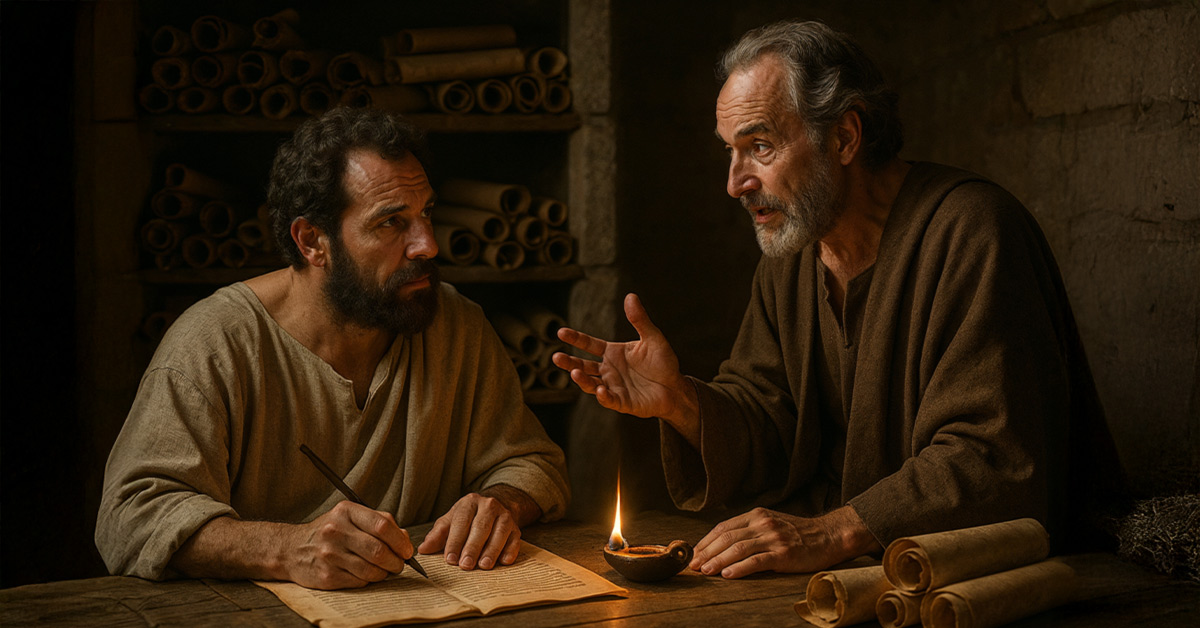Did the Early Church Fathers Believe in Eternal Torment?

Did the Early Church Fathers Believe in Eternal Torment?
When people today hear the word “hell,” they almost always think of eternal conscious torment , an unending chamber of fire where sinners suffer without hope. Yet this idea, far from being the consensus of the early church, was contested and even rejected by many of the most respected church fathers. History shows that the doctrine of endless torment was not the “original faith,” but a later imposition that clashed with the testimony of Scripture and the hope of God’s redemption.
The Majority Reported Otherwise
Augustine, often cited by defenders of eternal torment, openly admitted that the majority of Christians in his day did not believe in it. In his work Enchiridion he confessed:
“Very many, indeed, almost all, do not believe that eternal punishment is to be inflicted on man, but rather that all men are to be set free after a certain time has passed.”
If “very many, indeed, almost all” rejected eternal torment in Augustine’s own century, then the popular narrative that eternal hell was always the church’s position is simply false. Augustine may have opposed this belief, but he testifies to its widespread acceptance.
Basil the Great: The Mass of Men
Basil the Great, one of the Cappadocian Fathers and an architect of Nicene orthodoxy, also acknowledged the view of the faithful around him:
“The mass of men (Christians) say that there is to be an end of punishment to those who are punished.” (Homily on Psalm 7)
This was no fringe minority. The “mass of men” , everyday Christians , held to a vision of God’s judgment as temporary and corrective, not endless and vindictive.
Clement of Alexandria: No Limits to Redemption
Clement, head of the famous catechetical school of Alexandria, argued that Christ’s work does not end at death. His words are clear:
“We can set no limits to the agency of the Redeemer to redeem, to rescue, to discipline; and so he will continue to operate after this life.” (Stromata, Book VII)
For Clement, God’s judgment is not the cancellation of redemption but its extension , purifying, converting, and reconciling even after death.
Gregory of Nyssa: A Nicene Universalist
Gregory of Nyssa, brother of Basil and a key figure in the formulation of the Nicene Creed, was also one of the strongest voices for restoration. He wrote:
“It is evident that God will in truth be ‘in all’ then, when there shall be no evil in existence, when every created being is at harmony with itself, and every tongue shall confess that Jesus Christ is Lord.” (The Great Catechism, Ch. 26)
And elsewhere:
“The nature of evil shall one day be wholly destroyed, and divine, immortal goodness embrace within itself every rational creature; so that of all who were made by God, not one shall be excluded from his kingdom.” (On the Soul and Resurrection)
That such a man , honored as one of the “Cappadocian Fathers,” a shaper of orthodoxy itself , held to restoration proves that belief in the eventual reconciliation of all was not outside the pale of true Christianity.
Other Voices of Restoration
- Origen (3rd century): “At last the end is one, when all are subjected to God, and God is all in all.” (On First Principles)
- Diodore of Tarsus (4th century): “For the wicked, the torment to which they are sentenced is not eternal… after they shall have been set right by this discipline, they shall obtain the enjoyment of the happiness of the righteous.”
- Isaac of Nineveh (7th century): “Do not call God just, for His justice is not manifest in the things concerning you. He rewards those who sin against Him with resurrection; and He does not repay evil for evil.”
What This Means for the Debate
Those who champion eternal conscious torment (ECT) often claim it is the unbroken teaching of the church. History itself denies that claim. The fathers testify to something far greater: judgment with a purpose, fire with a goal, and punishment with an end.
The early church understood what many miss today: God’s fire is not a torture chamber but a refiner’s fire. It destroys evil, not souls. It disciplines for healing, not for cruelty. It purges until God is truly “all in all.”
The alternative doctrines , whether ECT or annihilationism , both truncate the story of redemption. Eternal torment paints God as a cosmic sadist. Annihilation suggests God gives up on His creation. But the testimony of Scripture and the chorus of many fathers point higher:
That Christ is the Redeemer of all. That punishment ends. That grace outlasts wrath. And that the final word is not destruction, but reconciliation.
Conclusion
The question “Did the early church fathers believe in eternal torment?” deserves an honest answer. Some did, but many of the greatest , Clement, Basil, Gregory, Origen, Isaac , proclaimed a larger hope: that God’s judgment is purposeful and His redemption boundless. Even Augustine admitted the majority denied eternal torment.
The record is clear: Eternal torment was not the universal faith of the church. The deeper truth, witnessed by both Scripture and the fathers, is that Christ will reconcile all. That is the gospel , not the small, fear-driven message of ECT, nor the hopeless resignation of annihilationism, but the blazing fire of God’s love that saves to the uttermost.
- 08/28/2025
- WRITE A COMMENT
Recent Posts
- The Eternal False Translation: How Aionios Was Corrupted Into Eternal
- The Rich Man and Lazarus
- Does Grace Last Forever?
- His Love Never Fails
- Love and Forgive Your Enemies
- His Mercy Endures Forever
- Scriptures That Teach Universal Reconciliation
- The Lesson of James, Peter and John
- Progressive Salvation is Biblical!
- The Gates Never Shut!


